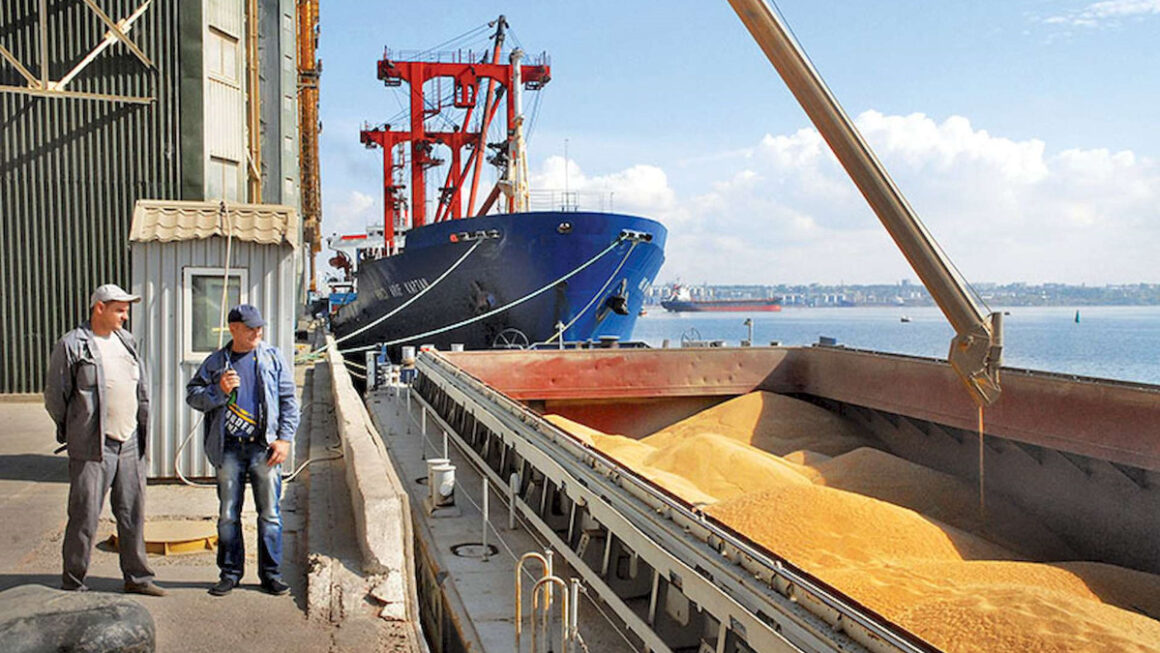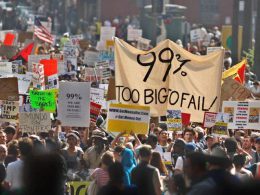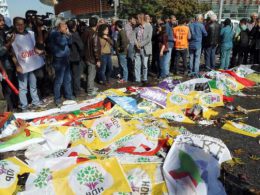By Dan O’Rourke
The breadbasket of the world is burning. Russia and Ukraine export 25% of the world’s wheat, and 12% of global calorie intake is directly dependent on grain from the two countries. Additionally, the world is critically reliant on the region for fertiliser. The UN has warned of the potential for global famine.
The war is halting the spring planting season, port blockades are severing food supplies, and sanctions are interrupting fertiliser production. As Ukrainians suffer Putin’s brutal bombardments, and Russian workers and poor people bear the brunt of economic sanctions, the outcome will be historic food shortages for the world.
Key global suppliers
Most of Russia and Ukraine’s grain is bought by states already enduring precarious food supplies. Lebanon, Yemen, Bangladesh and Pakistan import at least 50% of their grain from the region.
Egypt, which also depends on grain from the region, heavily subsidised food after bread riots in 2017. Climate change, drought, and resulting food shortages are a significant factor in the seven-year war raging in Yemen. The 2019 revolution in Sudan and the 2011 Arab Spring were triggered by food shortages.
Wealthier countries, though better able to stockpile commodities, will also be hit by shocks to supplies, inflicting hardship on day-to-day life for millions of working-class people.
Combined with existing capitalist crises (climate change, Covid, inflation, supply chain tangles) the latest disruption is likely to spark social upheaval on a global scale.
Big agri-businesses price gouging
Compounding the issue is the fertiliser production crisis. Russia and Belarus export between 40% and 14% of various nutrients essential for improving crop yields. Even before the war’s sanctions, increased energy costs were pushing up the cost of fertiliser production.
The fertiliser industry is heavily monopolised, delivering a windfall to certain corporations. One such company, Nutrien, reported a 680% increase in profit margins last year, while also complaining about increased production costs. The Financial Times has warned of a global food crisis commenting, “the effect of price rises could be exacerbated by excessive concentration in the sector.”
Big corporate growers are hoarding fertiliser for next year, but small farmers, typically in poorer economies, are cutting its usage, affecting crop yields by up to 25%, making it tougher to weather further shortages and price increases next year.
Democratic ownership and control of production
Innovations in farming machinery and fertiliser since the 1950s are some of the most important, if underrated, technological achievements in the history of humanity. We now produce more than enough to feed everyone. However, capitalism has created a contradiction of overproduction — as mountains of food go to landfill, and absurd amounts of grain goes to feed profitable livestock while millions starve everyday.
Even when shortages strike, farms could continue to produce enough to feed the world, but if profit margins are low, we will not be able to stave off famine, as investment is directed elsewhere. In order to ensure technologies and land are used for the benefit of all, they must be democratically owned and controlled by the working-class majority, not private corporations.
After workers seized control of Limerick city in 1919, they wrote “we make bread, not profits”, on the walls of the city’s newly expropriated bakery. This is precisely what’s needed today on a global scale to withstand the turmoil that the crisis-ridden capitalist system has in store












